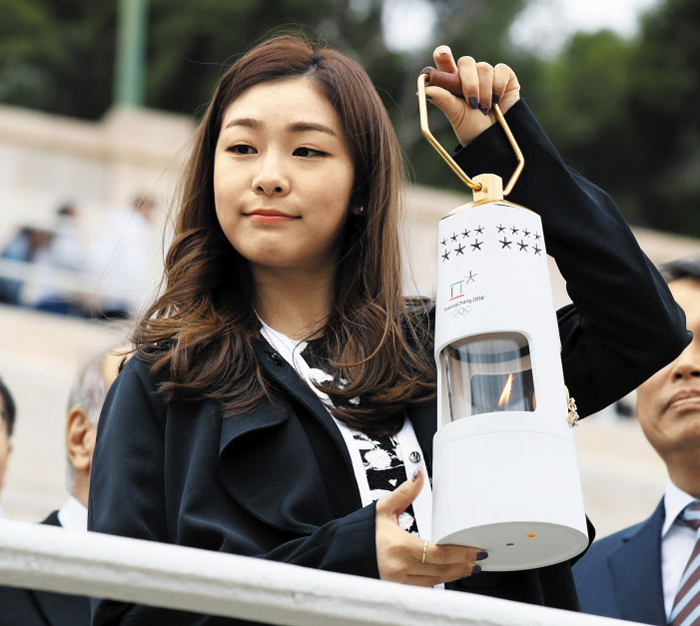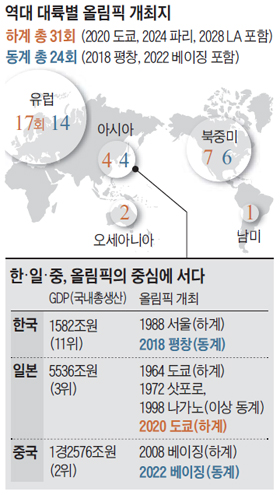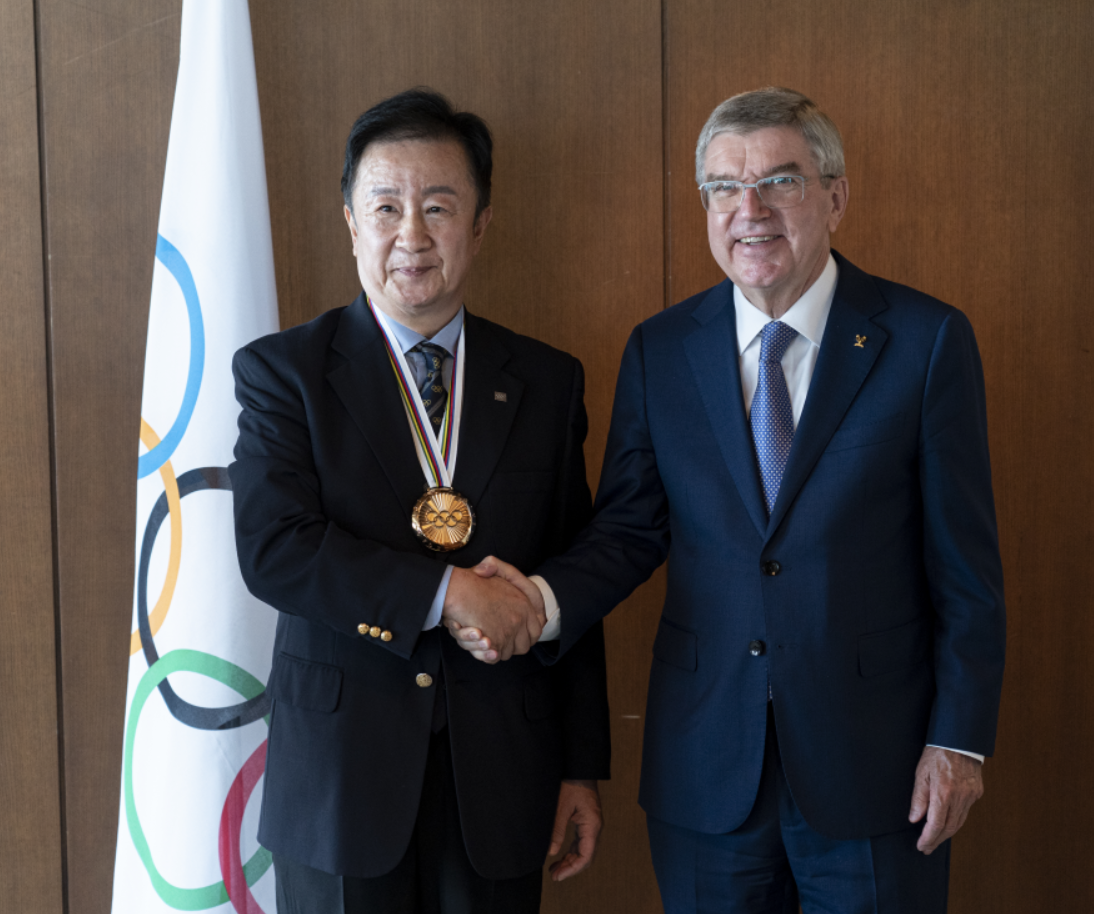[평창2018 유산거점마련 사후 올림픽 및 스포츠박물관건립
Benchmarking사례(2017 영월국제박물관 포럼)]
지난 2017년 9월15일 사단법인 한국박물관협회와 국제박물관협의회(ICOM)한국위원회가 공
동 주관한 ‘2017년 영월국제박물관 포럼(9.14~16)에 주제발표 및 토론 초청 자로 영월군 동
강시스타 포럼장소를 다녀왔습니다.
‘글로벌 상생을 위한 플랫폼-메가 스포츠와 스포츠박물관 임팩트’(Mega Sport and Sport
Museum Impact)에 대하여 영어 주제발표와 토론 질의응답을 가진 바 있습니다.


평창2018 동계올림픽 및 패럴림픽이 끝나고 나면 빙상종목경기개최도시인 강릉시에서는 쇼
트트랙과 피겨스케이팅 경기장으로 사용될 아이스 아레나 아이스링크내부에 평창2018스포츠
박물관/기념관을 설치 및 운영할 예정이라고 합니다.
이를 위해 지난 2015년 10월12일 서울 프레스센터에서 최명희 강릉시장과 30여년간 수집해
온 각종 ‘올림픽관련 소장품 3만 점 무상기증 협약 식’을 가진 바 있습니다.

(강릉 Ice Arena아이스링크/출처: 평창2018홈페이지)
협약 식에 참석한 최명희 강릉시장은 “올림픽 때마다 기념품을 모은 마음과 열정이 놀랍고, 무
상기증에 감사한다. 평창동계올림픽이 끝나도 대회 유산으로 남을 수 있도록 할 것”이라고 약
속한 바 있습니다.
지금까지 35년 간 전 세계 올림픽개최도시를 가봐도 개인이 모은 스포츠 소장품을 전시한 곳
은 아직 보지 못 하였습니다.
강릉시에 무상 기증한 올림픽관련 각종 소장품이 전시되면 올림픽역사고 이해하고 자연스럽
게 대회 후 지속발전 가능한 홍보와 유산으로 국내외 방문객들에게 스포츠의 힘과 국제친선
그리고 향후 올림픽운동 증진에도 기여할 것으로 기대하고 있습니다.
PyeongChang 2018 News (12 October 2015)
Olympic Memorabilia Collection to be donated to Host City Gangnueng, home of the Ice Venues for 2018 Olympic Winter Games

Date 12-Oct-2015 Hit 1,415
Olympic Memorabilia Collection to be donated to Host City
Gangnueng, home of the Ice Venues for 2018 Olympic
Winter Games
SEOUL, Oct 12- Rocky Kang-Ro YOON, President of International Sport Diplomacy Institute (
ISDI) and Special Advisor to President of the PyeongChang Organizing Committee for the
2018 Olympic and Paralympic Winter Games (POCOG), donates all his Olympic memorabilia
items collected during his 35-year international sports career.

The collection of over 30,000 items comprises more than 100 different kinds including
Olympic Pins, Commemorative Medals, Games Torches and Olympic Mascot Symbols will be
handed over to Gangneung City, the Ice Sports Venue city of the 2018 Olympic Winter
Games.
Yoon expressed his wish to be a part of the successful hosting of the first Winter Games in
Korea, commenting “The motive of my donation to Gangneung City is to contribute to the
sustainably legacy of the 2018 PyeongChang Games.”
After the Games, the Olympic memorabilia collection will be moved to a space reserved at
the Ice Arena in Gangneung City that will be open to the public for them to enjoy. The
collection will remain as a legacy for the PyeongChang 2018 Olympic and Paralympic Winter
Games.
Rocky Yoon served as Deputy Secretary General of the Korea Olympic Committee and as
Secretary General of the 2010 & 2014 Bid Committees for PyeongChang.
He is the first Korean recipient of the ANOC Merit Award & Order.
[List of Memorabilia]
·Olympic Pins
·Olympic Key chains
·Commemorative Sports & Olympic Stamps
·Commemorative Medals
·Games Torches
·Various kinds of Pendants
·Olympic Watches
·Olympic Accreditation Cards
·Commemorative Coins
·Olympic Ties
·Olympic Badges, Insignias, etc.
·Olympic Mascot Symbols,
·Olympic Books
·Sports related hanging scrolls,
·Pictures
·Olympic Posters
·Olympic Stickers
·Olympic Medallions
·Olympic Plaques
·Olympic Caps, Gloves, Clothes, Outfits, etc.
·All other Sport & Olympic Memorabilia, etc.
POCOG Press Office
Tel)+82.2.2076.2195~7
Email) pressoffice@pyeongchang2018.com
[Mega Sports and Sport Museum Impact]
*순서:
1.What is a Mega Sport Event?
2.스포츠의 힘과 글로벌 공동체
3.글로벌 스포츠 박물관 현황 및 국내 스포츠박물관의 현주소
4.평산 윤강로 개인스포츠박물관 설립과 비전 그리고 무상기증
가.What is a Mega Sport Event?
1)“The term, “mega sport event” refers to global sporting events such as the
Olympic and Paralympic Games, the FIFA World Cup in Football, and the IAAF
World Athletics Championships.”
2)The event has a high profile, there is a worldwide interest linked to the event
and there is a sustainable and measureable economic outcome.
3)It also improves employment both on a short-term and permanent basis.
4)A mega sporting event also involves political decision-making and involves the
strategies of a country`s Government.
나.스포츠의 힘과 글로벌 공동체
(1)이 세상에는 인류가 가장 선호하는 5가지 공통 언어가 존재한다. ; ‘돈(Money), 정치
(Politics), 예술(Art), 섹스(Sex), 그리고 스포츠(Sport)’가 그것이다.
(2)그 중 5번째에 해당하는 ‘스포츠’는 남녀노소 동서고금을 막론하고 우리인생을 살맛
나게 해주는 가장 건전한 필수 컨텐츠다.
(3)고전적 의미의 인류 3대 필수요소는 의식주(Food, Clothing, and Shelter)이지만 현
대사회에서 신 개념적 3대 필수요소는 ‘청정한 물’(Clean Water), ‘맑은 공기’(Clean
Air), 그리고 ‘만인의 스포츠’(Sport for all)라고 정의해 보고 싶다.
(4)스포츠는 자나 깨나 직접 실행하든 관람하든 응원하든 뉴스매체를 통해 접하든 간에
하루도 스포츠 없는 일상은 상상할 수 없게 되었다.
(5)스포츠는 인류선호 5대 언어들 중 나머지 4가지 언어적 특성 모두를 내재하고 있으
며, 스포츠의 인류 보편타당성 결과물이 바로 올림픽이다.
(6)올림픽은 지구촌 정치의 변모하는 얼굴모습을 보여주기도 하고 때로는 국제적 논란거
리를 만들어 주기도 하였고, 문화 / 교육 / 예술 / 육체적 / 미적 율동이 한데 어우러진 복
잡 미묘 다단한 종합 축제의 한 구석에 인간의 돈에 대한 집착의 무대를 꾸며주기도 하는
기기묘묘한 인류생태 심리학적 문화유산의 최대 걸작품이기도 하다.
(7)최근 국제적으로 실시된 ‘즉석 인지도 조사’(Spontaneous Awareness Survey)결과
올림픽이 ‘월드컵축구’의 2배의 인지도와 영향력을, ‘윔블던 테니스대회(Wimbledon
Tennis Championships)’보다 3배, ‘포뮬러 원(Formula One Motor Racing Grand
Prix)자동차 경주대회’보다 4배, ‘투르 드 프랑스(Tour de France) 사이클 대회’, ‘수퍼볼
미식축구대회(American Super Bowl)’, ‘월드시리즈 야구대회(World Series of
Baseball)’ 보다 6배, 그리고 ‘미국 컵(America's Cup)’ 및 ‘데이비스 컵 테니스대회
(Davis Cup)’보다는 무려 10배나 더 높은 인지도를 보여 주었다.
(8)그러한 올림픽 중1988년 서울올림픽은 前 사마란치 IOC위원장이 역대 최고의 올림픽
(The most Universal and the Best Games ever)이라고 극찬 한 바 있다.
다.국내 스포츠박물관의 현주소
(1)스포츠 강국이라고 자처하는 우리나라 스포츠박물관 실태와 비교하면 세계적 수준의 프랑스와 영국의 스포츠박물관은 부러움의 대상일 수 밖에 없는 현실임
(2)한국의 스포츠박물관으로는 서울 노원 태릉선수촌 국제스케이트장 2층에 4개 전시관을 갖춘 한국체육박물관과 경기도 수원시 광교박물관 등 일부 지방자치단체가 역사박물관 형태로 함께 운영하는 스포츠박물관도 존재하고 있음
(3)축구의 경우 서울 마포 상암월드컵경기장 내 2002년 한일 FIFA월드컵 기념관 형태의 박물관과 서울 종로구 신문로 축구회관 1층에도 축구박물관이 있는 것으로 알려짐
(4)하지만 이러한 스포츠 관련 박물관에 소장된 각종 스포츠 사료들이 분산되어 있으며 스포츠박물과의 위치가 일반 대중의 편리한 접근성과는 동 떨어져 있어 스포츠박물관의 매력과 역할을 제대로 발휘하고 있지 못함
(5)올림픽 관련 사료도 사실상 서울특별시 송파구 오륜동 올림픽공원 단지 내에 위치한 ‘서울올림픽기념관’과 대한체육회가 관리 운영하고 있는 태릉선수촌에 자리매김한 한국체육박물관 등에 분산 보관되어 있는 실정임
(6)태능 선수촌 한국체육박물관에는 베를린1936올림픽에 출전한 故(고) 손기정 옹의 그리스 청동투구, 몬트리올1976 올림픽에서 양정모선수의 대한민국 최초 올림픽 금메달 등 나름 역사적 가치가 있는 상당수의 올림픽 및 스포츠 관련 기념품 및 수집품 등을 전시해 놓고 있지만 한국을 대표하는 스포츠박물관이 되기 위하여서는 국가정책 차원의 배려가 필요할 것으로 사료됨
(7)스포츠 강국인 한국을 대표하는 국립스포츠박물관 건립 필요성이 최근 꾸준히 대두되어 왔으며 국민체육진흥공단에서 현재 사업시행을 위한 계획을 진행중인 것으로 알려진 바 있음
(8)스포츠박물관은 단순히 기념품과 사료를 전시하는 역할뿐만 아니라 스포츠를 통한 과거와 현재 및 미래와의 소통창구이자 공간임을 명심하였으면 하는 바람임
라.평산 윤강로 개인스포츠박물관 설립과 비전 그리고 무상기증
(1)국제 스포츠 계에서 35년 간의 국제스포츠외교활동의 흔적으로 수집된 올림픽 및 스
포츠 관련 기념품 등의 각종 콜렉션 3만 점 가량 개인소장 후 스포츠박물관 건립
(2)올림픽 뱃지(Olympic Pins), 올림픽 열쇠고리(Key Chains), 올림픽우표, 올림픽 메
달, 성화봉, 페넌트, 종류도 다양한 올림픽 시계, 올림픽 주화, 동전, 각종 대회 및 회의
ID카드, 올림픽 넥타이, 휘장, 마스코트인형, 책자, 기념품, 족자, 그림, 포스터, 스티커,
상패, 기념패, 뱃지 세트, 각종 모자, 장갑, 스포츠외교, 올림픽 티셔츠, 포스트 카드, 조각
품, 훈장, 공로패, 감사패, 올림픽 기념 스푼(Spoons), 종(bells), 자물쇠, 각국나라의 다
양한 술, 향수, 담배, 심지어 올림픽콘돔 등등에 이르기까지 별의 별 수집품들이 별도
의 보관창고가 필요할 정도가 되었음
(3)천신만고(?) 끝에 경기도 양평군 국수리 전원주택과 "평산 윤강로 스포츠박물관"이
2004년 완공되어 개관되었고 조촐한 개관식 기념행사도 가진 바 있었음
(4)주요 일간신문, 월간지(신동아), 방송등지에 많이 소개 해 주었고 정병국 양평 지역구
국회의원 등 양평군에서도 관심을 가져 주었음
(5)자크 로게 IOC위원장, 사마란치 IOC명예위원장, 하진량 IOC올림픽, 문화 교육위원장
을 비롯한 수 많은 IOC위원들과 국제 스포츠 계 인사들의 축하 메시지가 줄줄이 답지하
기도 하였음
(6)경기도 양평 국수리에 올림픽 관련 기념품을 전시하는 평산 스포츠박물관을 개장하고
스포츠박물관협의회(ASMA)를 통해 스포츠박물관 활성화에 노력해 왔는데 2004년 프
란시스 가벳(Francis Gabet) 국제올림픽위원회(IOC) 올림픽박물관장은 필자에게 스포
츠박물관 프로젝트 연구와 관련한 아이디어를 자문해 줄 것을 요청해왔었음.
(7) 1988년 서울 올림픽 장대높이뛰기(Pole Vault) 세계신기록 보유자-금메달리스트
겸 우크라이나 IOC위원 겸 NOC위원장인 Sergey Bubka, Magvan 몽골 IOC위
원, Samih Moudallal 시리아 IOC위원, Mme. Francoise Zweifel IOC전 사무총장 등
여러 명의 국제스포츠 계 인사들도 평산 스포츠박물관을 직접 다녀가기도 하였음
(8) 개장과 함께 각종 언론매체와 방송에 여러 번 소개되면서 스포츠박물관 탐방 방문객
들도 심심찮게 올림픽 및 스포츠관련 기념품을 통한 올림픽 역사와 스포츠가 주는 다양
한 문화적 가치가 공유되었다고 판단됨
(9)평창2018동계올림픽 및 패럴림픽이 2011년 7월 유치되어 조직위원회에서 활동하며
3년이 경과한 2014년 9월 경 평창2018 빙상개최도시인 강릉시청 관계자가 사무실
로 찾아와 대회 후 동계올림픽 피겨 및 쇼트트랙 경기장(Ice Arena)에 스포츠박물관을
계획하고 있다면 기증을 간곡히 요청하여 왔음
(10) 1개월이 경과한 시점에서 서울 프레스센터에서 10월13일 최명희 강릉시장과 무상
기증 협약 식을 갖고 그 동안 애지중지하여왔던 전 세게 35년 간 수집한 올림픽 소장품
을 통째로 기증한 바 있음
(11)대회 종료까지 올림픽 핀 등 기증 소장품 일부는 강릉시청 로비와 강릉 올림픽 파크
인근 평창2018 홍보전시관에 일반 전시되고 있음
(12)아시아스포츠박물관협회(ASMA: Asian Sport Museum Association)결성도 앞으
로 남은 과제임

(사진 우측이 Sergey Bubka)
[Mega Sports and Sport Museum Impact Update]
*Order:
1. What is a Mega Sport Event?
2. Power of Sports and Global Community
3.Overview of Global Sports Museums and Status Quo of Sports Museums in Korea
4.Creation and Vision of Private Sports Museum of Rocky Kang-Ro YOON, and Its Donation
5.What is a Mega Sport Event?
1)“The term, “mega sport event” refers to global sporting events such as the
Olympic and Paralympic Games, the FIFA World Cup in Football, and the IAAF
World Athletics Championships.”
2)The event has a high profile, there is a worldwide interest linked to the event
and there is a sustainable and measureable economic outcome.
3)It also improves employment both on a short-term and permanent basis.
4)A mega sporting event also involves political decision-making and involves the
strategies of a country`s Government.
6. Power of Sports and Global Community
(1) There are five common languages that humanity favors the most: money,
politics, art, sex, and sports.
(2) The fifth language, sports, is the healthiest and necessary contents that
enrich our lives across the world.
(3) The three necessities for humanity, in the traditional sense, are food,
clothing, and shelter. In modern society, however, the three new necessities are
clean water, clean air, and sports for all.
(4) It has become difficult to imagine daily lives without sports, whether
participating in one, watching a game, or hearing about it on the news.
(5) Sports encompass the characteristics of the other four languages that
humanity favors, and the Olympics is the necessary result of the universality of
sports.
(6) The Olympic Games show the face of changing global politics, and give rise
to international controversies sometimes. It is also the most sophisticated work
of art as a human psychology cultural heritage that displays human obsession
with money, on the side of complex festivities of culture, education, art, and
physical and artistic movements.
(7) According to the recent international Spontaneous Awareness Survey, the
Olympics has twice as much influence as the World Cup, three times that of
Wimbledon Tennis Championships, four time that of Formula One Motor Racing
Grand Prix, six times that of Tour de France, American Super Bowl, and
World Series of Baseball, and 10 times that of America's Cup and Davis Cup.
(8) In particular, the former IOC President Samaranch praised Seoul Olympics of
1988 as “the most universal and the best Games ever.
7.Status Quo of Sports Museums in Korea
(1) In comparison to the state of sports museums in Korea, a so-called champion of sports, those in France or the UK are of global standards and subjects of envy.
(2) As for sports museums in Korea, there are Korea Sports Museum, which is located on the second floor of international skating rink in Taereung, Nowon-gu, Seoul, with 4 exhibition halls, and Gwanggyo Museum in Suwon-si, Gyeonggi-do. Some are managed as history museums by local governments.
(3) For soccer, there is a museum that commemorates 2002 Korea-Japan FIFA World Cup within the Sangam World Cup Stadium in Mapo-gu, Seoul. There is another soccer museum on the first floor of soccer hall on Sinmun-ro, Jongno-gu, Seoul.
(4) However, various data on sports are spread out across the museums, and the location of these sports museums are far from easily accessible for the general public. Therefore, they are not fully attractive or playing their roles to the fullest as sports museums.
(5) Data related to the Olympics are also scattered, with some managed in the Seoul Olympic Commemoration Hall within the Olympic Park complex, Songpa-gu, Seoul, and the Korea Sports Museum in Taereung, managed by Korean Olympic Committee.
(6) In the Korea Sports Museum in Taereung, the bronze Greek helmet that Sohn Ki-jung won in the 1936 Berlin Olympics, Korea’s first gold won by Yang Jeong-mo in 1976 Montreal Olympics, and other historically valuable artifacts are on display. However, for the museum to become Korea’s representative sports museum, better national policy is needed to take care of it.
(7) The need to build a national sports museum worthy of a sports powerhouse like Korea has been surfacing strongly recently. The Sports Promotion Foundation is reportedly working on a plan to launch such a project.
(8) A sports museum does not just display commemorative items and artifacts. It should be remembered that it is a communication channel between the past, the present, and the future through sports.
8. Creation and Vision of Private Sports Museum od Rocky Kang-Ro YOON, and Its Donation
(1) About 30,000 pieces of artifact—collected for 35 years and related to the Olympics and other sports as evidence of international sports diplomacy—were collected by an individual and a sports museum was built for them.
(2) Olympic pins, key chains, stamps, medals, torches, pennants, and various Olympic watches, coins, ID cards, neckties, badges, mascot dolls, booklets, commemorative items, scrolls, paintings, posters, stickers, awards, memorial tablets, badge sets, various hats, gloves, sports diplomacy, Olympic T-shirts, postcards, sculptures, medals of honor, awards of achievement or of appreciation, Olympic spoons, bells, locks, alcohol from different countries, perfume, tobacco, and even Olympic condoms were some of the things collected, even needing a separate storage space.
(3) After numerous attempts, a sports museum on Yoongang-ro, Pyeongsan was built in a villa in Guksu-ri, Yangpyeong-gun, Gyeonggi-do, in 2004, and a small celebratory ceremony was also held.
(4) Major daily papers, monthly magazines (New Dong-A), and broadcasts introduced the museum, and local lawmaker Jung Byeong-guk for Yangpyeong and others at the gun level took great interest in the museum.
(5) IOC members, including President Jacques Rogge, Honorary President Samaranch, Head of Culture and Education Section Ha Jin-ryang, and other global sports celebrities sent congratulatory messages as well.
(6) The Pyeongsan sports museum was opened in Guksu-ri, Yangpyeong, Gyeonggi-do to display Olympics-related artifacts, and efforts were made to enliven it through ASMA. In 2004, director of IOC Olympics Museum Francis Gabet asked the author to consult him on ideas related to research into sports museum projects.
(7) Various global sports celebrities visited the Pyeongsan sports museum, including gold medalist and world record setter in pole vault in 1988 Seoul Olympics, IOC member for Ukraine, and head of NOC, Magvan Mongolian IOC member, Samih Moudallal Syrian IOC member, and former IOC Secretary-General Mme. Francoise Zweifel.
(8) The sports museum was introduced on various media outlets for its opening, and the visitors seemingly shared the history of the Olympics and the cultural value that sports give rise to by enjoying the artifacts related to the Olympics and sports in general.
(9) In September 2014, 3 years since the author became a member of the organizing committee for Pyeongchang Winter Olympics 2018 and for the Paralympics that took place in July 2011, an official from Gangneung City Office visited the author’s office. Gangneung is to host ice sports in Pyeongchang 2018. The official asked for donations of artifacts for the sports museum planned to open in the Ice Arena after the Olympics.
(10)After a month, a donation agreement was signed at Seoul Press Center with Gangneung’s governor Choi Myeong-hee on October 13. The entire collection of Olympics-related items, preciously preserved for the past 35 years, was donated.
(11)Until the end of the Olympics in 2018, some of the donated items, such as the Olympic pins, will be displayed for the general public in the lobby of Gangneung City Hall and the Pyeongchang 2018 Promotion Exhibition near the Gangneung Olympic Park.
()Establishment of the Asian Sport Museum Association (ASMA) is also something to work on for the future.

(Donation Ceremony of Olympic Artifacts, Held at Seoul Press Center: from left, donor Yoon Kang-ro and Governor Choi Myeong-hee of Gangneung)








































































